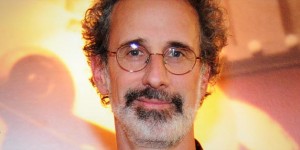 Daniele Fanelli, a research fellow at Scotland’s University of Edinburgh, has a commentary in the February 14 issue of Nature in which he discusses “an epidemic of false, biased and falsified findings” appearing in the world’s peer-reviewed journals. How to stop and reverse this trend?
Daniele Fanelli, a research fellow at Scotland’s University of Edinburgh, has a commentary in the February 14 issue of Nature in which he discusses “an epidemic of false, biased and falsified findings” appearing in the world’s peer-reviewed journals. How to stop and reverse this trend?
Fanelli describes the many proposals that have been discussed in Nature and elsewhere — “improving mentorship and training, publishing negative results, reducing the pressure to publish, pre-registering studies, teaching ethics and ensuring harsh punishments.”
But all this, Fanelli says, isn’t enough.
In the key sentence in the article, he writes:
We often forget that scientific knowledge is reliable not because scientists are more clever, objective or honest than other people, but because their claims are exposed to criticism and replication.
In other words, the systems in place to prevent fraud fail when criticism is muted or never occurs.
One of the biggest frauds committed by a scientist in the past year generated nary a peep of criticism from the scientific community. The criminal, who admitted to committing crimes that are punishable by years of imprisonment, continues to write and speak and even receive academic honors. After a brief “leave of absence” he got his old job back. His career hasn’t been adversely affected at all.
I speak, of course, about disgraced climate scientist Peter Gleick, once and still president of the Pacific Institute, a California-based nonprofit organization. In February 2012, Gleick confessed to stealing the identity of another person in order to obtain confidential documents from The Heartland Institute, another nonprofit organization that promoted views on climate change of which Gleick disapproved. Gleick disseminated the stolen documents, along with a fake memo he originally claimed had come from Heartland but later claimed to have received “in the mail” from an “anonymous source,” to environmental activists and reporters.
What should the scientific community do in such a case? Following Fanelli’s reasoning, it ought to have sternly criticized Gleick. It should have sent a message to all scientists that such behavior is not tolerated, that violating ethical and legal rules has consequences. Gleick should have been excommunicated from the community of scholars he had shamed.
None of that happened. A few scientists condemned the actions, but others excused and even praised Gleick for “exposing” a group that took an unpopular position on a major scientific controversy. In some circles, Gleick is a hero.
What message does that send to graduate students learning the guidelines of scientific debate? What does it tell donors and potential donors to nonprofit organizations supporting unpopular views, whether they concern climate change or social controversies such as homosexuality, racism, or abortion? And what does it tell us about the integrity of the scientific community, when it fails to criticize one of its own?